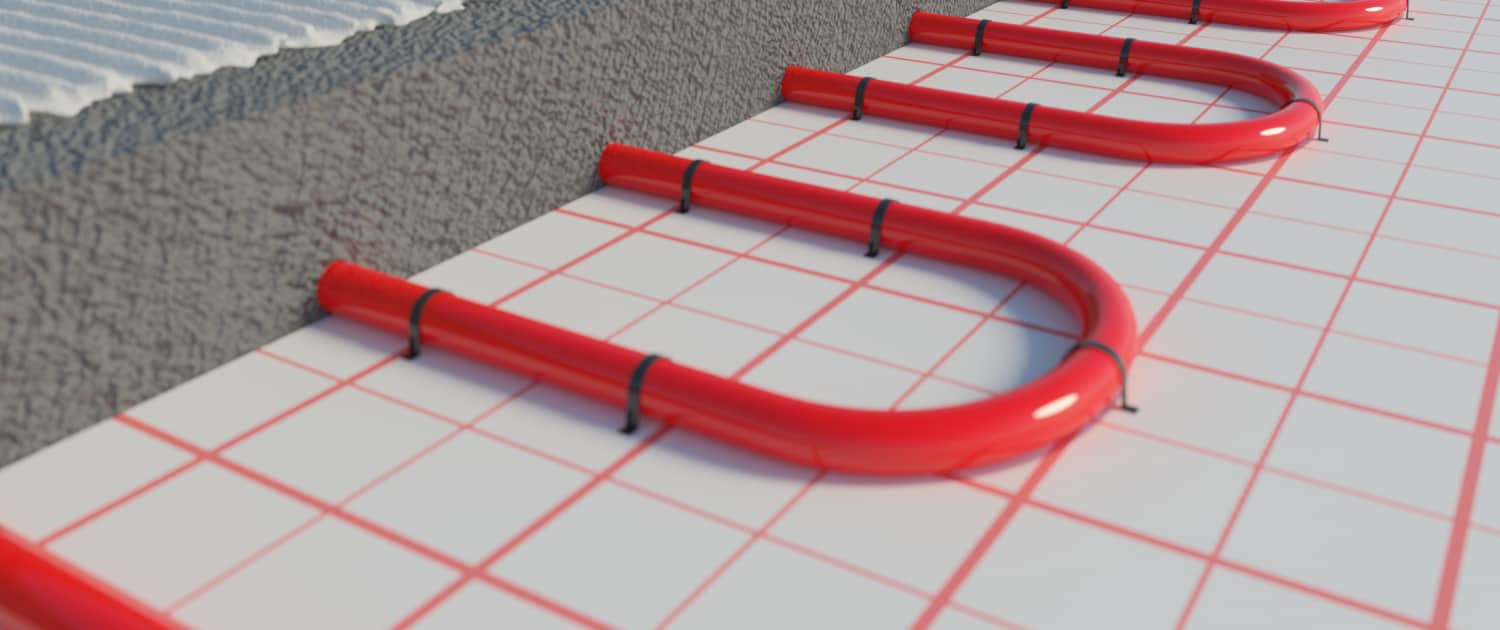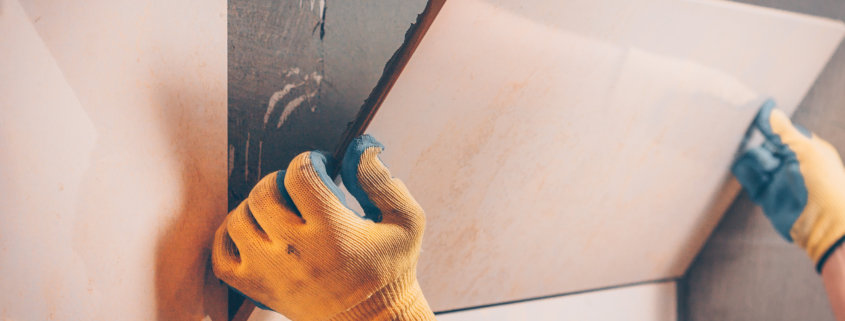Adhesives for natural stone tiles
Adhesives for natural stone tiles guarantee neat tiling
Natural stone tiles are extremely popular in interiors and exteriors as they exist in many types, each creating a special atmosphere to the area or space. Nevertheless, natural stone is not the easiest material to work with: when laying the tiles, a special adhesive is needed. There are plenty of adhesives for natural stone tiles, but not every stone type requires the same adhesive.
The right natural stone tile adhesive makes sure the tiling is flawless, and guarantees faster and easier application. However, the wrong choice of an adhesive can result in failure by affecting the physical or visual properties of the natural stone tile. Therefore, it is crucial to choose for the best possible adhesive for the specific type of natural stone.
How to choose an adhesive for natural stone tiles
Natural stone tiling can be the key to creating a specific atmosphere, however, laying the tiles needs special attention especially in regards of the adhesive that keeps the tiles in place. As there are different types of natural stones, there are also many adhesive options, yet not every adhesive suits every stone type. When choosing the best tile adhesive for natural stone, some important questions should be answered.
1. What is the surface made of?
The first factor to consider when choosing an adhesive for natural stone is the substrate the stones or tiles will be laid on. What material is the substrate made of? Is it porous or absorbent? Can it carry the weight of the tiles? These are all factors that define which natural stone adhesives can be used on the specific substrate. Find out what type of adhesive your substrate requires!
Always study the adhesive manufacturer ́s advice on suitable substrates and tiles in order to avoid costly mistakes.
2. Which type of natural stone is used?
The term natural stone tile covers all tiles made of natural stone. These can be divided into three groups: calcareous, non-calcareous and slate stone:
- Calcareous natural stone: stone types that contain calcium carbonate like limestone and marble and some sandstone types.
- Non calcareous natural stone: natural stone types that do not contain calcium carbonate including granite, sandstone and basalt.
- Slate: metamorphic stone formed over a long period of time. Results from a mix of other stone types and minerals.
The most important difference between the stone types regarding the choice of adhesive is its porosity. Porous natural stone tiles such as limestone and sandstone require an adhesive that does not get absorbed into the pores of the tile. Non porous tiles such as marble and granite can be bonded with a wider range of adhesive types. Also the color of tile matters as a light colored or translucent tile (marble and limestone) should never be combined with a colored adhesive. The adhesive layer can show through the tile affecting the hue of the finished tiling.
3. In what kind of environment are the stones or tiles laid?
The most common natural stone tile applications take place on walls and floors. However, these two applications cannot be completed with the same adhesive. Walls require vertical bonding, which is why the adhesive must be strong enough to hold the tiles in place even when the adhesive is not fully cured. Also the weight of the wall tile affects the choice of adhesive. When laying natural stone tiles on floors, the air need of the adhesive must be taken into account. Most adhesives for natural stone tiles need air to cure, however, for floors other means of curing are more beneficial as there is not much air under floor tiles.
The choice of adhesive is also affected by whether the tiling is placed inside or outside. Especially exterior tiling needs attention as the application conditions, temperature and humidity may vary. The conditions should be neither too hot nor too cold and the humidity percentage should be within the given range. Not only is the application important, but the required durability of the adhesive should also be considered: exterior tiling is exposed to the elements as well as temperature extremes and drastic fluctuation requiring strength and flexibility from the adhesive.Interior tiling is more forgiving in terms of the adhesive: the application conditions are not likely to exceed given norms, nor is the tiling likely to be subject to temperature fluctuation or the elements. Note that flexibility is required from the adhesive especially when tiling is laid on floor heating.
Extra: to what extent is maintanance needed?
Regardless the stone type or the tile adhesive, natural stone requires maintenance from time to time. Cleaning, protecting and careing fro the natural stone should be carried out with products designed for the purpose. The products for natural stone care can be divided into two grouops:
- Sealers: especially porous natural stone surfaces should be trated with a sealer as they are prone to dirt and debris, which may harm the visual or physical properties of the stone. A sealer reduces the need for cleaning the tiles and prevents irreversible staining.
- Cleaners: available for all natural stone types, cleaners remove dirt and stains from the tile or stones as well as from the grout between the stones. Make sure to use a cleaner that is designed for the specific stone type to prevent damage.
Which adhesive is best for your project?
In case you need additional information on natural stone tile adhesives, or would like assistance in choosing the best product, contact us. Our experts are happy to share their expertise with you in order to help you find the tile adhesive your project requires.
Types of adhesives for natural stone tiles
The adhesives for natural stone tiles are numerous, and when used correctly they all can result in fast and efficiently applied, durable and stunning tiling. Here you can find the three most common types of adhesives for natural stone tiles. Keep in mind that these are not the only types: contact us and get more information on the adhesive options.
- Cement-based tile adhesives: cement-based adhesives, also known as mortar, come in two types: thin set and thick bed tile adhesives. These can be used for laying most natural stone tiles as long as they are non porous like marble and granite. The common color options are white and grey.
- Construction epoxy: epoxy is among today’s strongest adhesives. In the right formulation high strength construction epoxy can also be used on natural stone tiling. Epoxy is usually flexible, which make the adhesive ideal for exterior tiling.It is not likely to be affected by temperature fluctuations or extremes.
- Customized polymer adhesives: as polymer adhesives are versatile and easily modified, they are also suitable for natural stone tiling. Especially flexible polymerized adhesives benefit natural stone. The adhesive formulation can also be easily customized to fit the purpose perfectly.
There are also tile adhesives with special properties such as heat resistance, in case of floor heating, sound insulation for floor and wall tiles as well as special adhesives for humid areas such as showers and dressing rooms.
Choose for flexibility when floor heating is involved

In the US and Canada, floor heating is becoming more and more popular. Small surfaces are usually heated using electric floor heating, whereas larger surfaces are heated using warm water pipes. In both cases, it is recommended to use a flexible tile adhesive as the heat source is close to the tiles and may cause movement.
Floor heating can be installed on new underfloors, which are tiled afterwards, or on old concrete or tile floors which receive a new tiling on top of the heating. Also in these cases a flexible tile adhesive yields the best results. Contact us for advice on the best tile glue.
Get the best adhesive for natural stone tiles in your project
It is not always an easy job to choose an adhesive for natural stone tiles as many factors affect the choice. Contact us if you need any help or assistance in choosing the best adhesive for your project!


